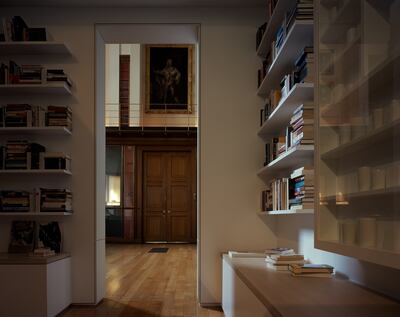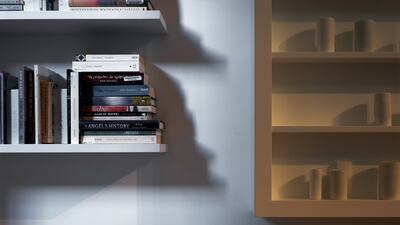A collection of 2,000-plus books from some of the world’s most celebrated authors has been sent to the University of Mosul as part of an international effort to rebuild its library.
British artist and author Edmund de Waal’s library of exile was displayed at the British Museum until January and remained there during the height of the pandemic until transportation to Iraq could be arranged earlier this month.
The acclaimed installation featured the works of almost 1,500 writers from 58 countries forced to leave their countries of origin for political reasons.
Readers at the Iraqi institution’s famous College of Arts will be able to browse through the pages of literary greats – from the ancients Ovid, Voltaire and Dante to the more contemporary, including the Chinese poet Ai Quing, Hannah Al-Shaykh from Lebanon and Samar Yazbek from Syria.
British Museum
“This library celebrates the idea that all languages are diasporic, that we need other people’s words, self-definitions and re-definitions in translation,” said Edmund de Waal. A book by his grandmother Elizabeth de Waal is also in the collection.

Exploring the themes of loss, displacement and destruction within its pages, the library of exile is a poignant addition to Iraq’s world-renowned library that was nearly entirely destroyed by ISIS in 2015. Once one of the largest libraries in the Middle East, with more than one million titles, including journals dating back to the second century, it was reduced to rubble during the occupation.
A senior curator at the British Museum's Middle East department told The National the donation was part of long-standing efforts to help restore Iraq’s rich heritage.
“Iraq is a birthplace of civilisation, at the core of our collection, a major part of our research and at the centre of our hearts. We work very closely with colleagues from the whole of Iraq and is a huge privilege and pleasure for us to play a small part in the reconstruction of Mosul as a great city once again,” said St John Simpson, a curator at the British Museum.
Working with the assistance of the Iraqi embassy, Book Aid International transported the collection to the University of Mosul where it will be permanently housed.
“Edmund de Waal’s library of exile harnesses the power of books to express the limits of human emotion and the role of libraries in preserving both our cultural heritage and the sum of human understanding,” said Alison Tweed, chief executive of Book Aid International.
Mr Simpson, who is also deputy director of the British Museum’s Iraq Scheme, told The National that the donation is part of several initiatives between the British Museum and the State Board of Antiquities and Heritage in Baghdad that include training, research, archaeological excavations, publication, repatriation of looted objects and other private donations.
In response to the devastation of heritage sites in Iraq and Syria by ISIS, the British Museum developed the UK government-funded Iraq Scheme aimed at reconstructing some of the cultural losses. A new programme of excavation, training and site conservation work is currently under way at the site of Tello, the ancient Sumerian city of Girsu.


